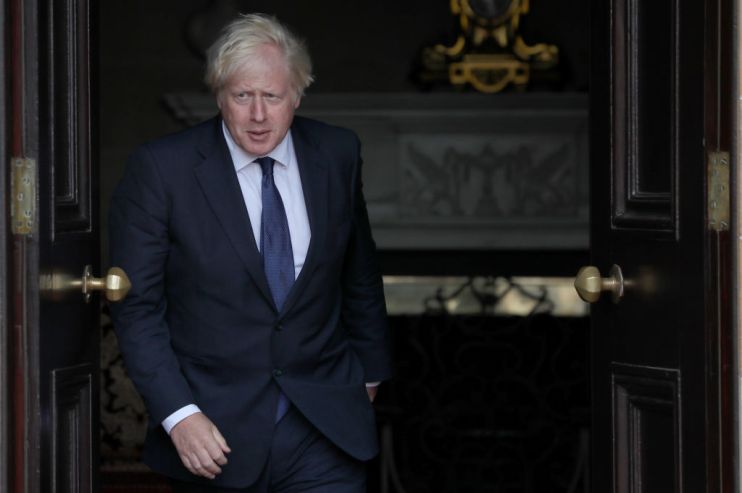Brexit: Downing Street denies it will tear up EU withdrawal agreement

The government is committed to its Brexit withdrawal agreement with the EU despite reports it was preparing to breach it, according to Boris Johnson’s official spokesman.
A report in the Financial Times today claimed that Johnson would bring forward legislation on Wednesday that would include clauses, pertaining to Northern Ireland, which would override the UK’s EU withdrawal agreement.
The Prime Minister’s official spokesman said today that the government wanted to make some “minor clarifications” in the internal market legislation and that the Prime Minister was committed to the withdrawal agreement.
The changes would only come into place if the UK left the EU on a no-deal basis at the end of the year.
Northern Ireland will remain in a customs union with the EU after the end of the post-Brexit transition period on 31 December, while Great Britain will not.
This means that some goods will require checks and customs declaration forms when going between Great Britain and Northern Ireland.
The proposed clarifications revolve around goods that are deemed to be “at risk” of entering the EU’s single market, after they are sent from Great Britain to Northern Ireland.
The withdrawal agreement says that the EU chooses which goods are deemd to be “at risk”, but the UK government is seeking to amend this so it can unilaterally decide what goods are “at risk”.
Before the Open newsletter: Start your day with the City View podcast and key market data
It is unclear if the EU will view this as a breach of the withdrawal agreement.
The Prime Minister’s spokesman said: “These limited clarifications deliver on the commitments the government made in the General Election manifesto, which said ‘We will ensure that Northern Ireland’s businesses and producers enjoy unfettered access to the rest of the UK and that in the implementation of our Brexit deal, we maintain and strengthen the integrity and smooth operation of our internal market’.
“This was reiterated in the Command Paper published in May.”
It has also been denied that the UK was planning on overriding state aid rules for Northern Ireland that were agreed in the withdrawal agreement.
The withdrawal agreement, which was passed through British and European parliaments in January, includes a clause that restricts the level of subsidies the government can give to Northern Ireland private companies.
There will reportedly be explanations for how that is measured to clarify which companies will be impacted by the state aid rules.
Downing Street made it clear that they are still committed to maintaining the EU’s state aid regime in Northern Ireland.
A UK official said: “If we don’t take these steps we face the prospect of legal confusion at the end of the year and potentially extremely damaging defaults, including tariffs on goods moving from Great Britain to Northern Ireland.
“We are making minor clarifications in extremely specific areas to ensure that, as we implement the protocol, we are doing so in a way that allows ministers to always uphold and protect the Good Friday peace agreement.”
Today’s reports sparked speculation that the proposed changes would effectively end UK-EU free trade agreement negotiations as chief EU negotiator Michel Barnier has said in the past that “a precise implementation of the withdrawal agreement” was required for a trade deal to be brokered.
Johnson last night set a new deadline of 15 October for a trade deal to be completed between the two sides, adding that a no-deal exit would be “a good outcome”.
The UK leaves the EU single market and customs union on 31 December.
If it leaves without a deal then trade barriers, like tariffs and quotas, will immediately be erected between the EU and UK.
This would lead to more expensive prices for European goods in the UK and an inevitable decrease in British exports sent to EU countries.